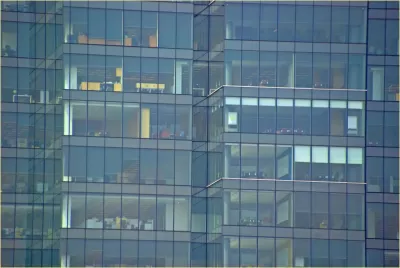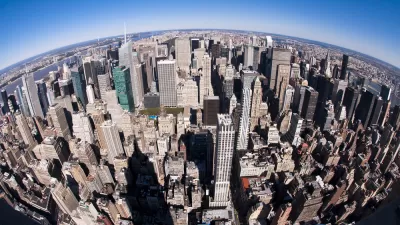Features like blank street facades literally turn us off, decreasing mental stimulation and bringing on restlessness and stress. Research points to worrying consequences for people who find their city, well, boring.

Colin Ellard, an environmental psychologist and neuroscientist, connects the bland facade of a Whole Foods store to study participants' lackluster mood. "These people were bored and unhappy. When asked to describe the site, words such as bland, monotonous and passionless rose to the top of the charts."
When asked about their experience roaming a more interesting locale, "the words that sprang to their minds were mixed, lively, busy, socialising and eating. Even though this site was so crowded with pedestrians that our participants struggled to find a quiet place to reflect on our questions, there was no doubt that this location was to their liking on many levels."
Ellard discusses why we prefer stimulating places, streets full of people and activity. It can even be argued that staid environments contradict our intelligence as a species. "At a psychological level, these constructions fail us because we are biologically disposed to favour locations defined by complexity, interest, and the passing of messages of one kind or another."
Maybe we accept un-ornamented, utilitarian spaces because we expend so much attention on the digital world. "But unless our electronic connections can supplant our physical surroundings, the widespread adoption of global, functional designs will have [negative] psychological consequences of the kind described here."
FULL STORY: Streets with no game

Alabama: Trump Terminates Settlements for Black Communities Harmed By Raw Sewage
Trump deemed the landmark civil rights agreement “illegal DEI and environmental justice policy.”

Planetizen Federal Action Tracker
A weekly monitor of how Trump’s orders and actions are impacting planners and planning in America.

How Atlanta Built 7,000 Housing Units in 3 Years
The city’s comprehensive, neighborhood-focused housing strategy focuses on identifying properties and land that can be repurposed for housing and encouraging development in underserved neighborhoods.

In Both Crashes and Crime, Public Transportation is Far Safer than Driving
Contrary to popular assumptions, public transportation has far lower crash and crime rates than automobile travel. For safer communities, improve and encourage transit travel.

Report: Zoning Reforms Should Complement Nashville’s Ambitious Transit Plan
Without reform, restrictive zoning codes will limit the impact of the city’s planned transit expansion and could exclude some of the residents who depend on transit the most.

Judge Orders Release of Frozen IRA, IIJA Funding
The decision is a victory for environmental groups who charged that freezing funds for critical infrastructure and disaster response programs caused “real and irreparable harm” to communities.
Urban Design for Planners 1: Software Tools
This six-course series explores essential urban design concepts using open source software and equips planners with the tools they need to participate fully in the urban design process.
Planning for Universal Design
Learn the tools for implementing Universal Design in planning regulations.
Jessamine County Fiscal Court
Caltrans
Institute for Housing and Urban Development Studies (IHS)
City of Grandview
Harvard GSD Executive Education
Toledo-Lucas County Plan Commissions
Salt Lake City
NYU Wagner Graduate School of Public Service





























